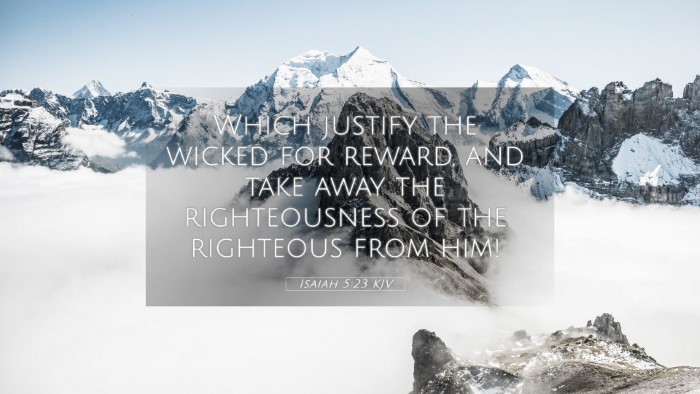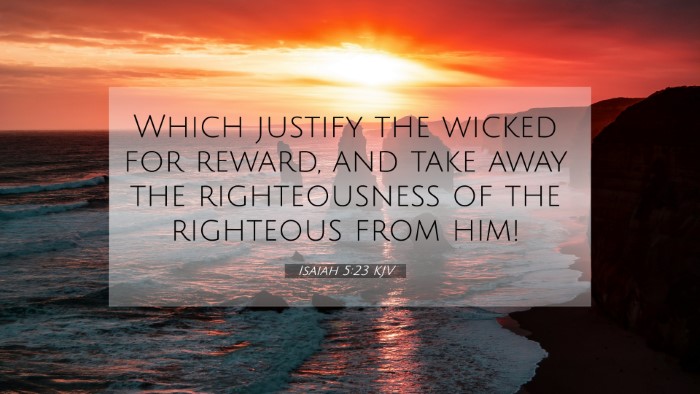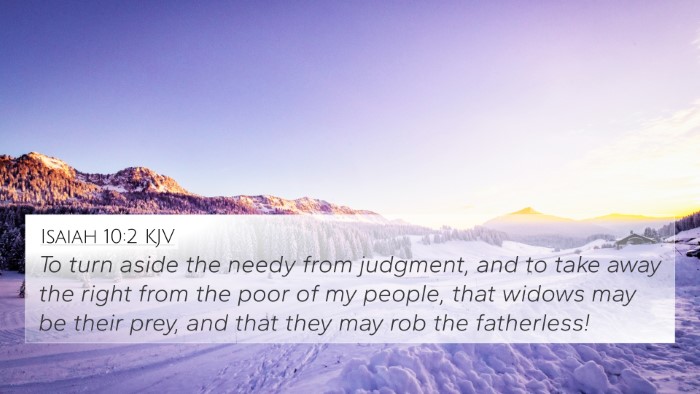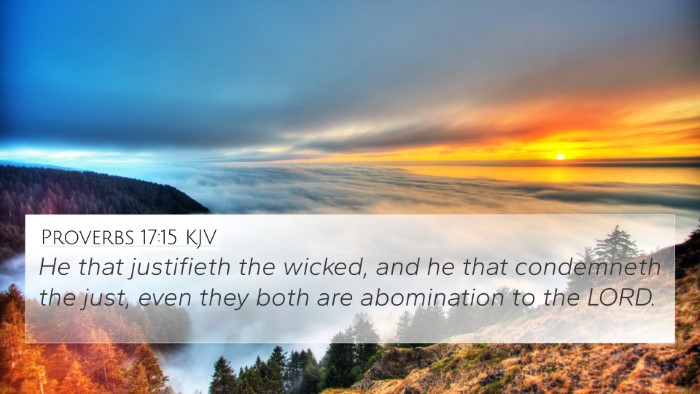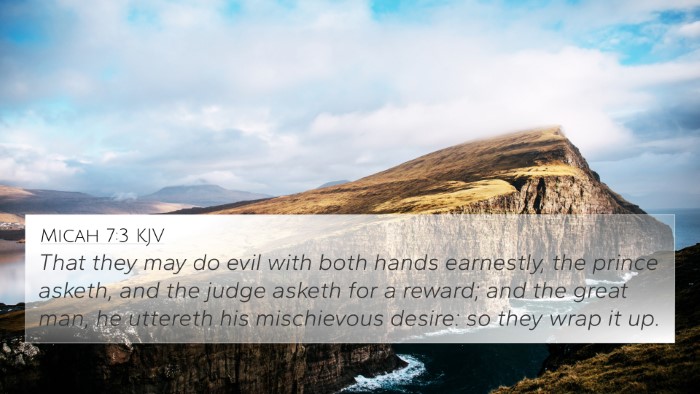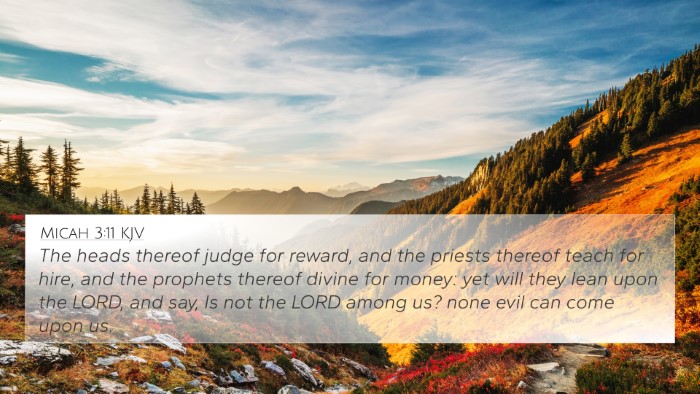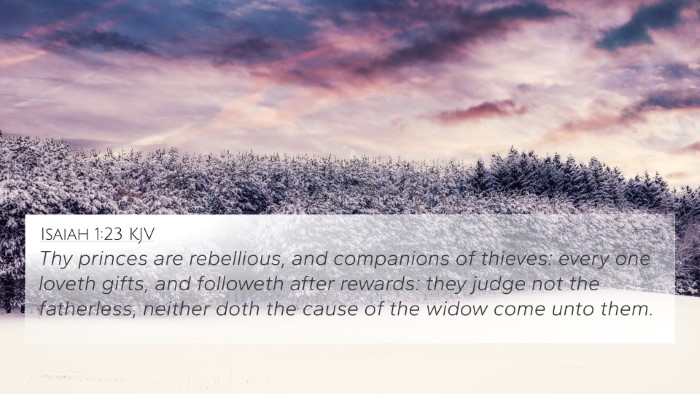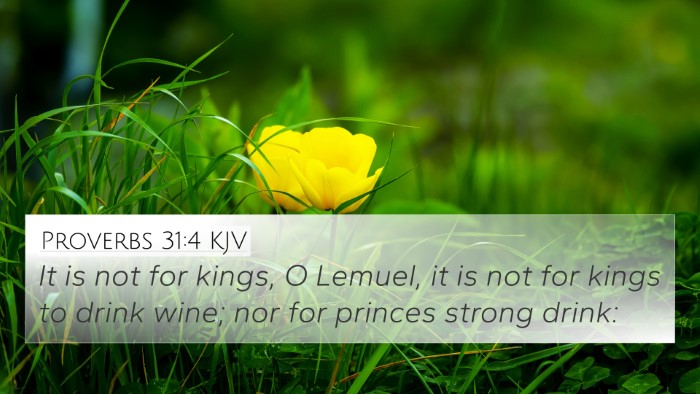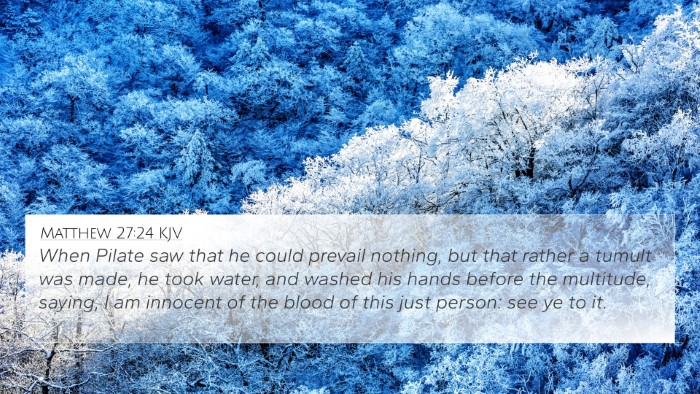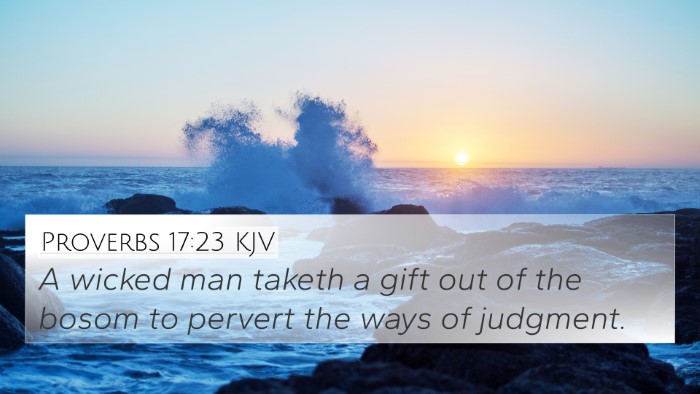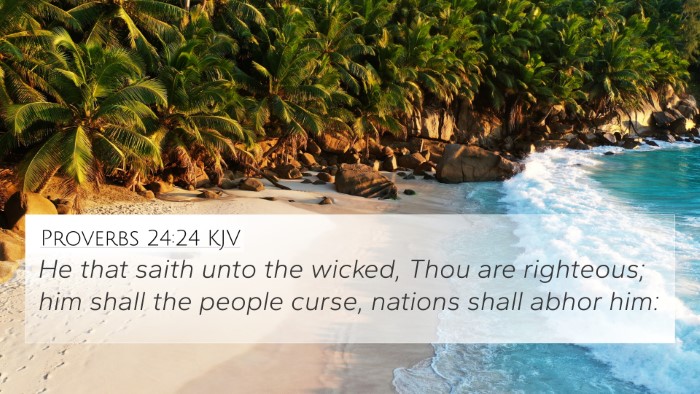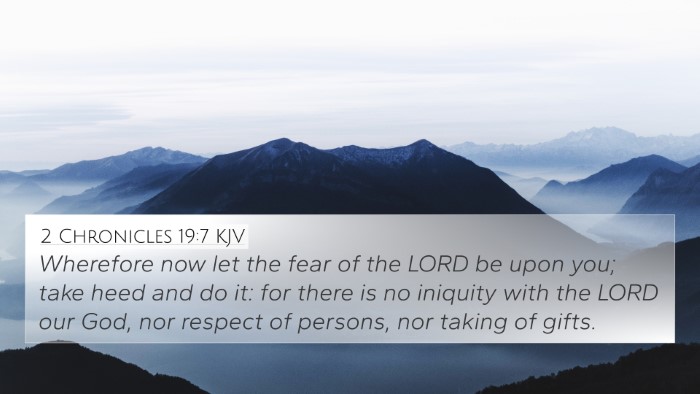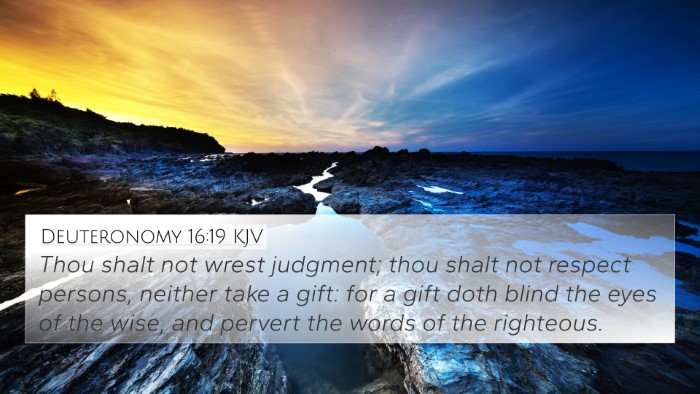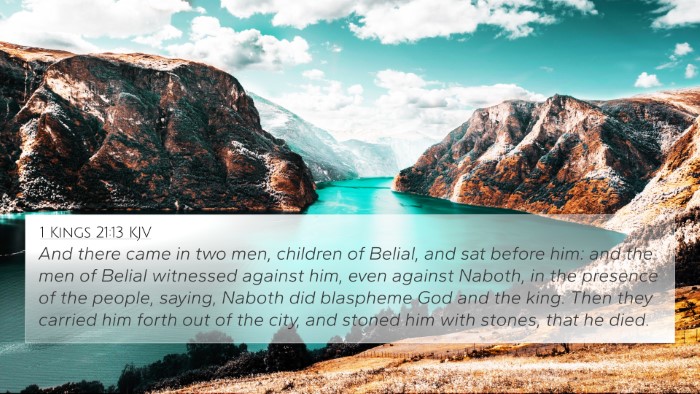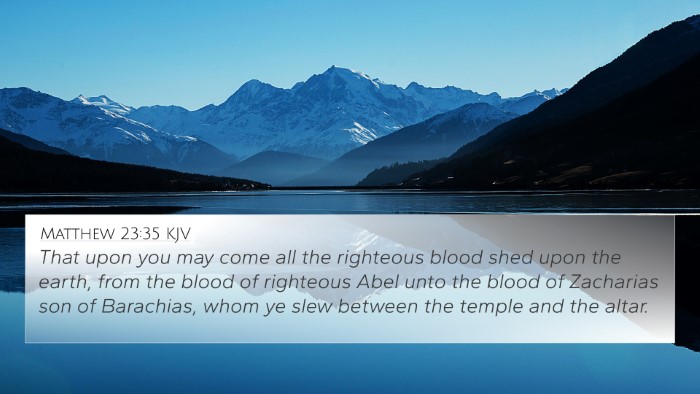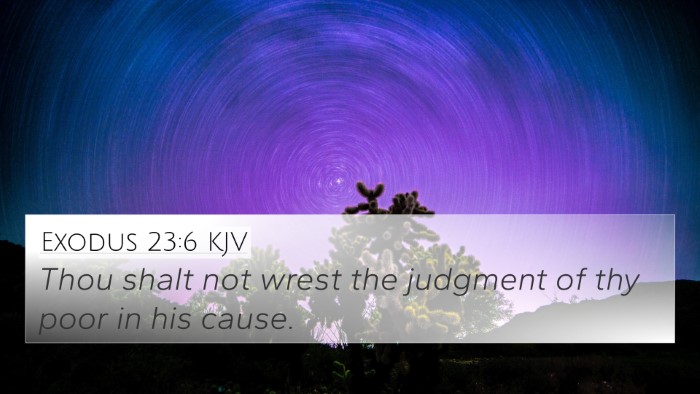Understanding Isaiah 5:23
Verse: Isaiah 5:23 states: “Woe unto them that are mighty to drink wine, and men of strength to mingle strong drink.” This verse serves as a warning against the indulgence in alcohol and the moral corruption it can lead to.
Summary of Meaning
The prophet Isaiah, in this verse, addresses the issues of moral decay within the society of his time, specifically targeting those who misuse their strength and power to indulge in excessive drinking. They prioritize their quest for pleasure and personal gratification over justice and righteousness.
Commentary Insights
- Matthew Henry: Henry emphasizes the peril of being “mighty to drink wine,” indicating that strength and power are often corrupted when not tempered by temperance. He suggests that the societal leaders who partake in such indulgences not only harm themselves but also lead others astray.
- Albert Barnes: Barnes focuses on the consequences of such unrestrained behavior, noting that it leads to injustice and the perversion of justice. He underscores the idea that strong drink fogs judgment, thereby allowing transgressions against both God and one's neighbors.
- Adam Clarke: Clarke elaborates by discussing the broader implications of indulgence in wine and drink, highlighting how this behavior detracts from one’s duty to uphold justice and righteousness. He connects the love of strong drink with issues of vanity and pride.
Biblical Cross-References
This verse finds relevance across various scriptural texts. Here are seven to ten cross-references that showcase its thematic connections:
- Proverbs 23:20-21: Warns against being among heavy drinkers of wine, linking excess with poverty.
- Ephesians 5:18: Advises not to be drunk with wine, but to be filled with the Spirit, contrasting worldly excess with spiritual fullness.
- Isaiah 28:7: Like Isaiah 5:23, discusses the perils of drunkenness and its effects on judgment.
- Habakkuk 2:15: Pronounces a woe to those who give drink to their neighbors, highlighting the moral implications.
- 1 Peter 4:3: Encourages a departure from past drunkenness and revelries, connecting it to a life transformed in Christ.
- Proverbs 20:1: States that wine is a mocker, and those who are deceived by it are not wise.
- Romans 14:21: Suggests abstaining from activities that cause a brother to stumble, touching on the effects of indulgence.
- 1 Corinthians 6:10: Lists revilers and drunkards among those who will not inherit the Kingdom of God, emphasizing the seriousness of the issue.
Connections between Bible Verses
Exploring the connections between Isaiah 5:23 and these other verses illustrates the Bible's comprehensive approach to moral conduct. The thematic continuity shows the value placed on self-control and justice, which significantly contrasts with the indulgent behaviors criticized in Isaiah. As we engage in Bible verse cross-referencing, we uncover deeper layers of meaning and an understanding of God's perspective on human conduct.
Tools for Bible Cross-Referencing
For those seeking to delve deeper into cross-referencing, various resources can enhance your study:
- Bible Concordance: A tool that helps you locate verses and their themes.
- Bible Cross-Reference Guide: Books and online tools that provide connections between Scriptures.
- Cross-Reference Bible Study: Methods to analyze verses in relation to one another.
Inter-Biblical Dialogue
Studying Isaiah 5:23 offers a window into the culture of its time and its theological implications throughout scripture. It elucidates the lasting consequences of choices made by individuals and leaders alike. By implementing cross-referencing Bible study methods, one can identify connections that enhance understanding of Biblical themes, encouraging spiritual growth and moral integrity.
Conclusion
Through careful examination of Isaiah 5:23 and its contextual meanings, we gain insight not only into the text itself but also into a broader Biblical narrative concerning morality and spiritual priorities. May this understanding inspire both personal reflection and communal discourse.

